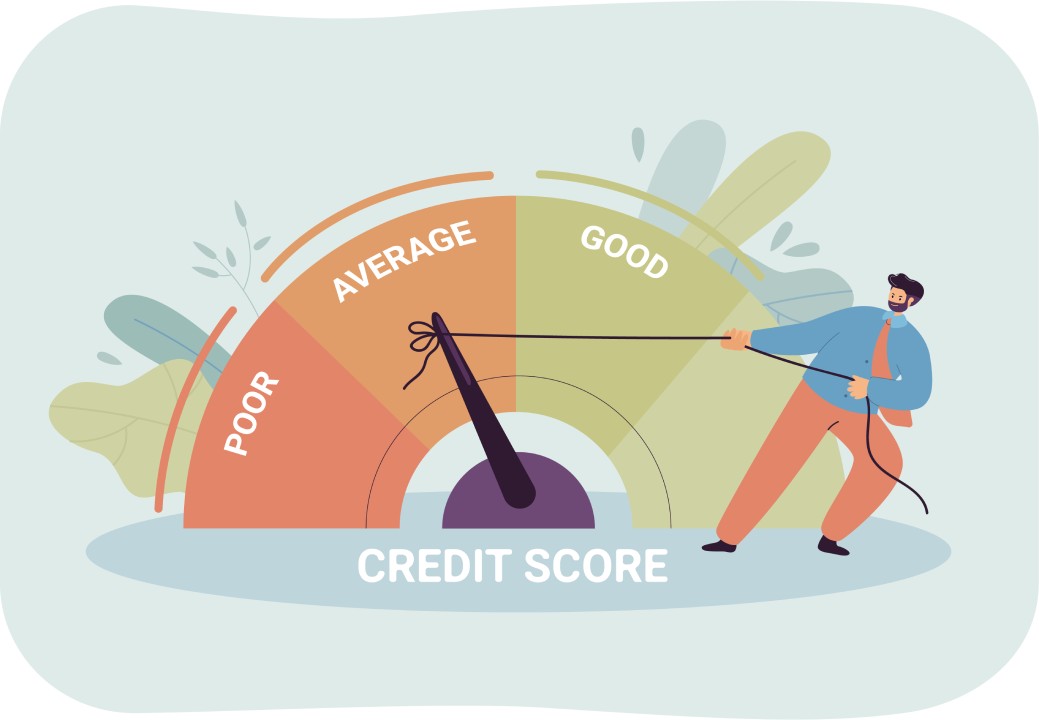When it comes to obtaining a personal loan, one of the most crucial factors influencing approval and terms is an individual’s credit score. While most people are aware that a higher score leads to more favorable terms, many do not fully understand the implications of having a lower credit score, especially one below 700 or, in some cases, below 650. This analysis will explore how a lower credit score impacts loan terms, interest rates, and approval opportunities. Furthermore, we will discuss strategies to navigate these challenges, as well as the risks involved in borrowing with a poor credit history.
Key Factors in Loan Approval and Credit Score Impact
| Factor | Description/Impact |
| Credit Score | Directly affects loan terms (interest rate, loan amount) |
| Interest Rates | Higher rates for lower credit scores to compensate for higher risk |
| Loan Approval | Possible with low credit score, but at higher rates and smaller amounts |
| Alternative Options | Fintech loans, instant loans, and pre-approved loans may provide alternatives but come with higher rates |
| Improving Credit Score | Pay down debt, correct credit report errors, use secured credit cards to improve score |
| Instant Loans | Small amounts, easy approval, but often high interest rates |
| Pre-approved Loans | Convenient but typically come with higher rates for low-credit borrowers |
| Risks of Borrowing | Financial strain from higher EMIs, long-term debt accumulation |
| Credit Score Monitoring | Regular checking of credit scores helps identify errors and improve scores over time |
By understanding the intricate relationship between credit scores and loan terms, individuals can better navigate the borrowing process, making informed decisions about when and how to secure credit, especially with a lower credit score.
Impact of Credit Score on Loan Terms
Credit scores directly affect the loan amount and the interest rate offered by lenders. Typically, individuals with a score above 700 are considered low-risk borrowers and are rewarded with lower interest rates and higher loan amounts. Conversely, applicants with scores below 700 often face stricter terms. For instance, a loan amount that would be available at an 11.5% interest rate for someone with a score above 700 may be offered at a higher interest rate, such as 12.5% or more, to someone with a lower score. These disparities highlight the importance of credit scores in determining not only eligibility but also the cost of borrowing.
Higher Interest Rates for Lower Credit Scores
Lenders compensate for the increased risk associated with lending to individuals with lower credit scores by charging higher interest rates. A credit score is a reflection of a person’s creditworthiness, which is essentially an indicator of how likely they are to repay the loan on time. If the score is low, the lender perceives the borrower as a higher risk and, therefore, demands a higher return on their investment in the form of interest. For example, the interest rate on a ₹5 lakh loan for a high-credit borrower may be 11.5%, while the same loan might come with an interest rate of 12.5% for someone with a lower score. The increase in interest rates can have a significant impact on the overall cost of the loan, increasing monthly repayments and the total interest paid over time.
Loan Approval Despite Poor Credit Scores
It is possible to secure a loan even with a credit score below 650, although it comes with challenges. Banks and financial institutions may approve loans to individuals with low scores, but the terms will often be less favorable. The key factors that influence approval are the applicant’s income, employment stability, and existing debt-to-income ratio. Lenders may be more willing to extend credit to borrowers who can demonstrate a reliable income and a manageable level of debt. However, those with very poor credit scores may face significant hurdles, such as higher interest rates, smaller loan amounts, or even rejection in extreme cases.
Bank’s Interest Rate Range Based on Credit Score
Banks often establish a tiered interest rate system based on credit scores. For example, Bank of Baroda’s interest rate range of 13% to 18.25% for personal loans illustrates how an applicant’s score can directly influence the loan terms. A borrower with an excellent score might secure a loan at the lower end of the range, whereas someone with a poor score may face the highest possible rate. This gap in interest rates underscores the lender’s strategy of managing risk through price differentiation. Understanding the range and how credit scores fit within it is crucial for borrowers who are considering taking out a loan with less-than-perfect credit.
Alternative Loan Options for Lower Credit Scores
For individuals with lower credit scores, alternative lending options may provide more flexibility. Fintech platforms and instant loan providers offer small loans quickly, often without the rigorous credit checks required by traditional banks. However, these loans come with risks, especially if the platform is not regulated. Borrowers should ensure that any platform they consider is approved by the Reserve Bank of India (RBI) or partnered with an RBI-approved Non-Banking Financial Company (NBFC). Pre-approved loans, while convenient, also tend to carry higher interest rates, so borrowers need to weigh the pros and cons before committing.
Improving Credit Score to Qualify for Better Loan Terms
One of the most effective ways to improve loan terms is by enhancing one’s credit score. Individuals can take several steps to boost their score before applying for a loan, such as paying down outstanding debts, ensuring timely payment of bills, and correcting any errors in their credit reports. In addition, obtaining a secured credit card—where the credit limit is backed by a deposit—can be an effective way to build or rebuild credit. By demonstrating responsible credit usage, individuals can gradually increase their score, making them eligible for more favorable loan terms in the future.
Small Loan Amounts via Instant Loans
For borrowers with poor credit, taking out smaller loans via instant loan services might be a viable option. These loans, offered by fintech platforms, provide quick access to cash, but they are typically capped at smaller amounts. The ease of approval and rapid disbursement make them attractive to borrowers in need of immediate funds. However, it is important for borrowers to be cautious about the high interest rates that often accompany these loans. Ensuring that the platform is RBI-approved can help mitigate the risk of fraud or predatory lending practices.
Pre-approved Loans and Their Conditions
Pre-approved loans are another option for individuals with lower credit scores, although they often come with higher interest rates. Lenders may offer these loans based on an individual’s limited credit history or specific banking relationship, but they are usually provided at a premium interest rate. For borrowers with poor credit, the allure of quick approval can be tempting, but it is important to carefully review the terms and ensure that the loan is financially manageable in the long term.
Risks of Borrowing with Poor Credit
While obtaining a loan with a low credit score may provide immediate financial relief, there are significant risks involved. Borrowers may face financial strain due to the higher interest rates and increased monthly payments. In addition, accumulating debt with unfavorable terms can negatively affect long-term financial stability. Those who are already struggling with poor credit may find themselves in a cycle of debt, paying high EMIs and accumulating interest, which can be difficult to escape.
Importance of Regular Credit Score Monitoring
Regularly monitoring one’s credit score is essential for identifying mistakes, improving creditworthiness, and ensuring that any discrepancies are addressed promptly. Many financial institutions and third-party services offer tools for tracking and improving credit scores. By staying proactive about credit score management, individuals can enhance their chances of securing favorable loan terms in the future and avoid unpleasant surprises when applying for credit.




